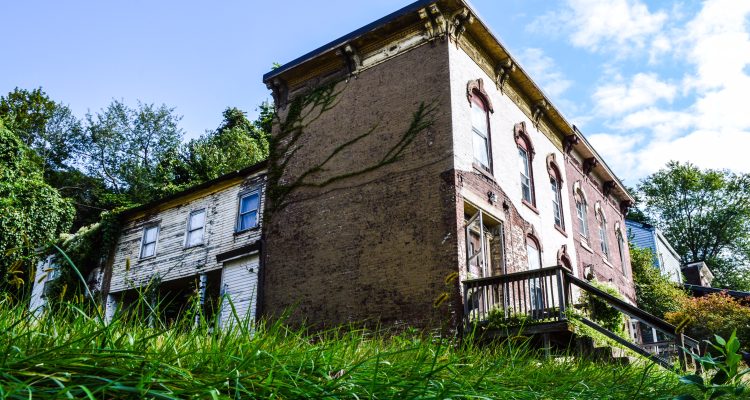Most Wheeling neighborhoods have long been strong with residents who have cared for their houses and properties, but the Friendly City’s original residential areas – North Wheeling, East Wheeling, Centre Wheeling, and South Wheeling – have been neglected, are decaying, and only now are being revitalized.
While “Old Town” North Wheeling has been a focus for revitalization since the late 1980s, it took the J.B. Chambers Recreation Field to finally change public opinion about East Wheeling, an area of town that became known for drug dealing, gunfire, murder, and neglected properties in the 1990s. Now current residents are restoring historic structures, buying up the vacant lots left by demolition, and an effort to establish the neighborhood as officially “historic” is well on its way.
Centre Wheeling recently has been stoked by the resurgence of the Centre Market area as a bona fide destination, and residents also initiated the creation of the Chapline Street Row Historic District. But Centre Wheeling has its share of dilapidated structures mixed about the memories of a neighborhood once crowded with immigrants from all over the world. Some have been saved; others, left to rot.
A group in South Wheeling is making efforts to re-establish the neighborhood’s identity. Residential is mixed with commercial properties, still, but what’s historic and what is not, technically anyway, is the puzzle being tackled by students and staff from Belmont College’s restoration and preservation program. They want to know what’s worth saving, and they want to know what can be erased.
The same situation, however, now faces property owners in all of Wheeling’s neighborhoods because of the increasing average age of the city’s residents. and the issue is one of many involved with the Friendly City’s upcoming municipal election in May 2016.
Many of Wheeling’s current city council members joined filed candidates in answering the following four questions that directly pertain to these properties and the owners. Their answers are listed alphabetically for each inquiry.
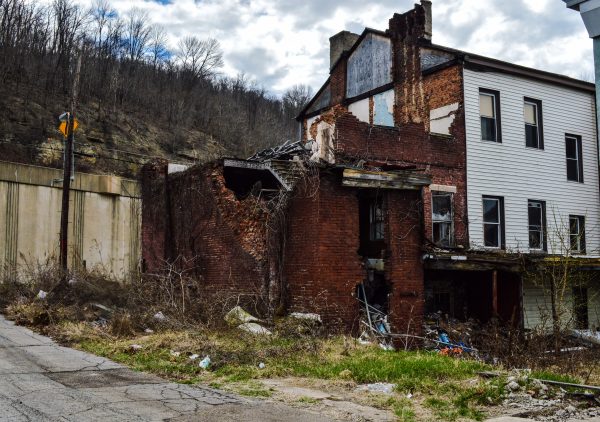
What are your ideas for city government’s future dealings with the city’s slumlords and property hoarders so owners of primary-residential properties can realize increased property values?
Don Atkinson, Council member, Ward 5:
First, not all landlords are slumlords, and most we never hear a word about, but it seems we are always dealing with the same ones. They know how to work the system, and I believe the court needs to be a little tougher.
Glenn Elliott, Candidate, Mayor of Wheeling:
It’s no secret to anyone familiar with Wheeling’s real estate market that we have a handful of property owners who have the means but aren’t pulling their weight. Some are taking advantage of the increased demand from the oil and gas industry to rent out substandard housing as-is. Others are sitting on multiple properties either for tax write-offs or simply to wait for other people in the neighborhood to bring up property values. It’s a real problem. But as a city, we have to strike a balance between the rights of individual property owners, on the one hand, and the rights of neighborhoods and communities on the other. And we also have to be careful that any ordinances we approve don’t cast such a large net that you end up penalizing elderly individuals on fixed incomes who might not be able to keep their homes up with the times. It’s a very delicate balance that requires laser-focused targeting, and if it were easy, it would have been done by now.
Gene Fahey, Vice Mayor, Council member, Ward 6:
An individual’s home is the single largest investment that many of us will make in our entire life time. The city is blessed with many responsible homeowners who continually do the right thing for themselves, their neighbors, and their investment. There are also many responsible landlords as well who provide quality housing at a fair value. However, there are also people who buy property on speculation and have it sit for many years while it continues to fall into disrepair; our current vacant building registration was designed specifically to address these people, and I believe that needs to continue forward. A rental property inspection program would be great to deal with landlords who are offering substandard housing. Currently they have very little accountability to what they offer, and this puts many residents in a terrible position when looking for rental property.
David Miller, Council member, Ward 4:
A high percentage of landlords are responsible property owners that contribute to the need for quality, affordable housing in the city of Wheeling. Wheeling does, however, have to deal with local and out-of-town property owners that don’t fully take pride in the condition of their property and the actions of their tenants. We continue to seek out derelict owners and use the courts and other resources to mitigate problem areas. This will be a constant issue that we will continue to attack in the coming years.
Jeremy Morris, Candidate, Ward 2:
Our city should take a larger role in the Abandoned Properties Coalition, a statewide coalition seeking solutions to abandoned properties. Wheeling isn’t the only community facing derelict properties and the people who collect them and hold them. This group is working on adjusting state legislation to be more favorable so that municipalities can better address the issues of vacancy.
A land banking program should be considered; most property hoarders purchase properties at tax sales. The city and/or coalition of partners should be aggressive in purchasing properties and ensuring that they are placed into the hands of owners who wish to restore them or redevelop the property and thus back on the tax rolls.
David Palmer, Candidate, Ward 6:
It’s not that I disagree that there are slumlords in our city, but this is such a loaded question. Why do renters rent these properties if they are so deplorable? Did the landlord create the problem, or was it the renter that moved in and destroyed the property? Each case is different; sometimes you have buyers of properties that have money to purchase the properties but not the funds to repair them; other times it’s just the opposite, but in the end how do you deny anyone the right to purchase a piece of property? I could pass the blame to other entities, but I won’t. We simply need to address each case on its own merit and enforce the laws or codes that currently exist until new laws or codes are passed.
Wendy Scatterday, Candidate, Ward 4:
Create a new attitude and set expectations in which all property owners understand that owning property is a privilege, and it should be treated as such. With the privilege of property ownership comes responsibility. Owning property is a privilege, especially when one elects to use that property to generate income from either a commercial use or an apartment rental /lease.
Creating this new attitude and set of expectations is achieved by establishing/enacting and enforcing not only the existing property ordinances, but also creating new policies to ‘motivate’ property owners into action in every legal way possible. As an architect, I am charged with protecting the health, safety and welfare of the public, not only ethnically, but legally and with regard to liability. Property owners gaining income as a result of ownership and allowing persons to live or work within their property must be required to do the same: protect the health, safety and welfare of their lease holders/building occupants. As a community we must avail ourselves of every option possible to motivate property owners to positively contribute to our community through upgrading and maintaining their buildings.
Chad Thalman, Candidate, Ward 1:
I believe the city should consider rental inspections to help address the problems of slumlords in the city. Rental inspections could help assure that rental property is maintained at whatever minimal standards the city sees fit. By keeping rental property up to certain standards, the city can not only assist the tenant who lives in that rental unit, but also keep the property value of the entire neighborhood up.
Brian Wilson, Candidate, Ward 3:
While I think that the current vacant property registration program is a good start, I also believe that it needs more teeth to combat the handful of property hoarders that plague our neighborhoods. I would like to see it restructured as a tiered system that involves several new aspects: how many vacant properties does a single owner have? How long have they owned it, and how long has the building been vacant? Is it current with fire service fees? When was the last building permit for the property pulled, and what was the scope of work? Finally, does that scope of work reflect the high-priority problems that seem to be afflicting the building? With the answers to these questions in hand, I believe that it will be easy to see the owners’ intentions, and each fine should be based upon a building-by-building basis.
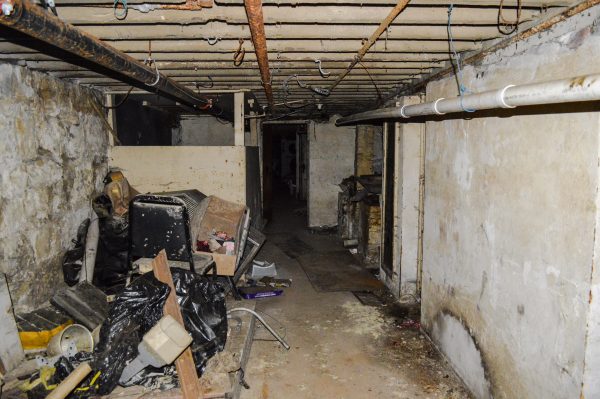
Do you believe the city’s vacant registration program should increase the fees for the property owners who continue to refuse to investigate future uses for their buildings?
Atkinson:
The problem with increasing the fees is there are some folks that have inherited property or just don’t have the resources to maintain them, so they fall in disrepair. If these owners do not possess the money to fix them up, then it’s likely they do not have the money to pay the fees. I, myself, find it interesting that the property owners who do very little to keep their property nice seem to have the money to pay the fees.
Elliott:
I like the spirit of the city’s current Vacant Building Registration Program, but I would need to have a closer look at the universe of buildings that have been registered and assess their progress before considering any changes thereto. For me, programs like this come down to thinking very carefully about the incentives you are creating as well as making sure you aren’t casting too wide a net. Not all vacant buildings are created equal. Some are vacant despite the owner’s best efforts to get them code compliant; others are one of many empty structures owned by property hoarders who are waiting for others to bring up property values.
As I understand the program today, I’m not sure it is tailored specifically enough to target the truly problematic properties without also penalizing owners acting in good faith to restore their buildings. And to the extent that waivers have been granted to certain property owners under this program, I’d like to see the criteria used for those determinations. We can’t get too caught up on this or that property or this or that property owner; we need to think about communicating and enforcing a clear set of incentives for people to do the right thing with their properties across the city.
Fahey:
Yes. These fees were not set up for the city to receive revenue; they were designed to motivate property owners who have property in very poor condition to demolish or to renovate and make them safe and no longer eyesores to all. Keep in mind that if a person has a vacant property that is safe and has utilities to the structure or it is currently for sale, the owners do not pay the fee.
My feeling are that if you have a building that does not have basic utilities on, the property will become dilapidated very quickly, and we have seen this over and over again across the city.
Miller:
The vacant registration program has been a successful way to identify vacant areas of concern. The challenge with respect to increasing the fees is that the reason for vacancy varies by each structure. Some vacant situations are temporary while others remain more structural and long term. The frustration with some of the properties is that the fees are paid on time, but the property is not on track for sustainable use.
Morris:
I believe there is need for a solid evaluation of the program. It has been effective in allowing the city to get a better understanding of the extent of vacancy and conditions. However, I have been concerned from the program’s inception that over the long course of time it may force the unnecessary demolition of salvageable buildings. “A bigger stick” may not be the answer to solving vacant properties.
One of the major problems in vacant buildings in this market is that neither owners nor potential buyers are willing to undertake predevelopment costs associated with properties, understanding floor plans, code deficiencies, and the unknowns of the building. These evaluations make properties more marketable. It is a proven concept that works in this community. The city and its partners have successfully moved large commercial properties in the central business district by undertaking predevelopment costs to have solid marketing information. It will work for smaller properties and residences as well. There are programs across the country that employ models like this to encourage responsible property ownership. Structuring a program for Wheeling will take some time and consideration but should be part of a plan for neighborhood revitalization.
Palmer:
I do not believe that these fees need to be raised. I think they are fair, and I believe the code enforcement officer should have the right to be flexible when an owner is trying to repair their property. I will not deny that there are times when property owners take advantage of the code officer, but for the most part property owners are genuine in wanting to do what is needed so long as they have the means to do so. Others, and if they are reading this will know who they are, will always try to fight city hall.
Scatterday:
Financial “motivation” is typically the only way to motivate a building owner who does not understand their unmaintained and/or unoccupied building is a drain and a dead weight negatively impacting our community and neighborhoods. These local and distant property owners often will only respond to a financial arrangement that is negatively impacting their bottom line. As a community we can, and should, provide policies and mechanisms that change the financial incentives of property ownership from the existing arrangement that doesn’t motivate owners to convert their vacant properties to fully occupied and positively contributing buildings. All properties in Wheeling need to be positively contributing to our community in specific and at large. A positively contributing building or place is one that is well maintained on the exterior, as well as the interior.
While no property should be required to be elaborate or “fancy,” all structures must provide a safe, well lit, properly maintained basic environment to live, work, or serve within and around. Any property owner not willing to provide this basic level of safe and adequately occupiable space, needs to either sell the property or upgrade it immediately. As a community we can motivate these negligent owners into action to either stay and upgrade or sell and get out, but it will have to be done through financial impacts. In the case of a person who is willing to upgrade, but is without financial means, a phased and assistive approach must be taken to work towards a remedy.
Thalman:
I believe the city’s vacant registration program should continually be evaluated and assessed to determine the best way to encourage building owners to investigate future uses for their buildings. Empty and vacant buildings impose a cost on any city, and we should continually look at ways to reduce the number of vacant buildings within the city and get those buildings occupied. When a building sits empty, not only is it often an eyesore, but it also is not generating any type of significant tax revenue for the city. Whether a building is fully occupied or vacant, the city still has to pave and plow the street in front of the building, pay for the streetlight next to the building, and maintain the water and sewer lines that run to the building’s property line. The cost of these services to the city doesn’t change much if the building is full or empty, but the tax revenue the city can receive from a fully occupied building can be significantly more than what an empty structure produces. The city should continue to be proactive in encouraging vacant buildings to be developed.
Wilson:
I believe that the fines imposed should go up every year a building sits vacant as long as no building permits are pulled addressing high-priority issues. I think that if an owner is actively investing in their property, such as replacing a roof or any other major investment, then they may be eligible for a fee-waiver based upon what kind of work was completed. Building permits and post-permit inspection must be available for review to prove that work was completed.
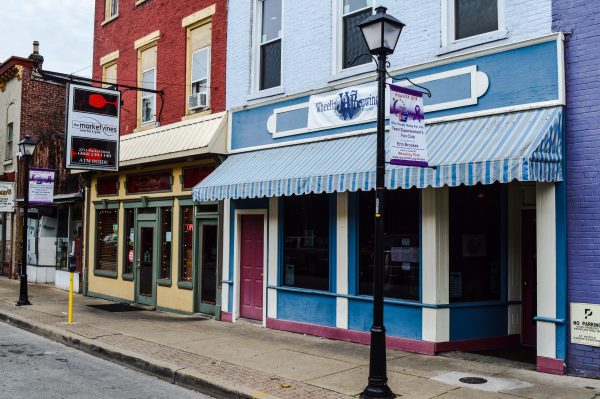
Do you believe Wheeling City Council should pass a Rental Property Inspection Program like the one now in operation in Bluefield, W.Va.?
Atkinson:
I would be interested in the property inspection program. If I were a rental property owner, it would be nice to know my property is good renting shape, but I’m sure those who own a lot of property will not agree. Also, it would come down to cost and manpower for such a program.
Elliott:
I would certainly be willing to look at options here. I can’t recall the last conversation I’ve had with a group of Wheeling voters where the declining quality of rental properties wasn’t mentioned. It’s a real problem in some of Wheeling’s residential neighborhoods. But again, the key here is making sure that you strike the right balance between the interests of property owners/landlords, on the one hand, and the neighbors living near their properties, on the other. And if you do go forward with a rental inspection program, you better make sure up front that you have adequate funding and staffing to enforce it fairly across the city.
One of my pet peeves of government at any level is inconsistent enforcement of laws on the books. Anytime you fail to enforce enough laws adequately, you risk undermining faith in the system itself. And I know that cities like Bluefield and Morgantown that have rental inspection programs have had some issues keeping up with the volume of rental properties they have. From my perspective, having a rental inspection program that is not enforced consistently could be worse than having no program at all.
Fahey:
I think a rental property inspection program would not only benefit those who rent but all property owners in the city.
Miller:
To my understanding this was discussed several years ago without much traction because of strong resistance from property owners. I would be interested in the property inspection program that would not be punitive to economic success but would increase the standards of acceptable living conditions.
Morris:
I do believe it is time to investigate inspection models. It needs to be an equitable program that insures residents are getting the living conditions they deserve while not placing burden upon our landlord community. I have spoken with several property managers that have seen program work in other parts of the country and favor them because it raises the quality of rental conditions and in turn helps stabilize rental value over the course of time. We should be looking beyond Bluefield; one program suggested to me for study is the Rental Unit Certification of Occupancy program in Greensboro, N.C. That program has been successful, but not without its share of scrutiny and debate. We should be taking lessons from the other places around the country and build a program that suits Wheeling.
Palmer:
I am not familiar with the plan Bluefield has in place, but I would tread cautiously in this area. I am 100 percent for life safety, but my concern is why does government need to tell you what you should do to with your property? Shouldn’t you know as an adult and a property owner? I believe city government would better serve as advisers instead of enforcers.
Scatterday:
Property owners that have the capacity to convert their properties into positively contributing buildings must do so and within an aggressive timeframe. In many cases these more-than-capable owners electing to neglect their property will need to be motivated into action. That motivation should come from every available policy mechanism that exists (or needs to be implemented) by both financial motivation and strong enforcement of existing building and fire codes. This would also include an active and vigorous inspection program, including periodic reviews at lease renewal points for rental property.
Thalman:
Over the last several months I’ve had the opportunity to talk to many residents all over the city of Wheeling, and many people have expressed frustration with the state of rental properties in their neighborhood. I think rental inspections are something that should be considered in order to help address the problem of slumlords in the city of Wheeling. The rental inspection program could be designed and structured so that landlords would be required to register their rental property with the city; the city would then have minimum standards that all rental properties in the city would need to maintain. Not only would this program help renters within the city have decent places to call home, but this would also serve to keep neighborhoods looking nice and property values high.
Obviously we wouldn’t want to place any undue hardship on landlords, the vast majority of whom I believe do a good job maintaining their properties, but it is the responsibility of elected officials to be responsive to what the people want, and I feel the residents of Wheeling want something done about the poor condition of some rental properties. I think rental inspections are something that can help address this concern.
Wilson:
I believe that a rental inspection program is a good idea for two reasons: First, it ensures high quality and safe living conditions for tenants and encourages buildings are kept in good repair and habitable; secondly, a modest fee can be charged for every inspection, further funding the building inspection department. I believe that Wheeling’s building inspection officials are honest and fair people that are underfunded and stretched too thin. To find a way to additionally fund the department can help keep our buildings safer and our quality of life higher, whether in a rental or not.
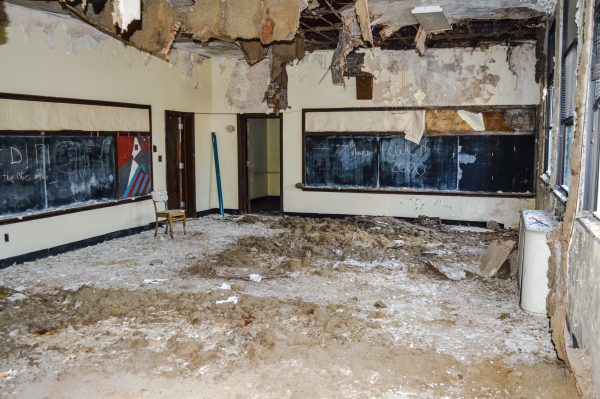
Should City Council allot more general funds to future demolitions of abandoned properties to open more avenues for future residential development?
Atkinson:
There are over 200 pieces of property that need torn down at any given time. It seems for every 10 we demolish, 10 more get on the list. Using more general-fund money could be an option.
I have always said government moves slow, and this is one of our slowest moving processes. Plus, there are some property owners who just hate the city. I think they just enjoy letting their property sit empty and run down, and I guess that’s how you get the name slumlord.
Elliott:
It’s no secret that I’m a fan of saving old buildings when we can and using demolition only as a last resort. And this is particularly true when we’re talking about buildings with particular historical or architectural value – many of which qualify for historic tax credits. But I also recognize that we can’t save every building. Some are either too far gone or are part of a parcel or tract that needs to be cleared for development. But my scale would be tipped toward preservation when at all feasible.
Why? Because when you look at commercial and residential development that’s taken place in Wheeling in recent years, preservation has a much better track record than demolition. To be fair, it’s not even close. A great deal of the construction taking place in Wheeling right now is taking place within old structures, and there is no shortage of vintage buildings suitable for redevelopment. Is there a place for new construction? Absolutely. But let’s remember that demolition often means tearing down structures built to last centuries and replacing them with structures built to last decades.
And while demolition may be logistically “cleaner” from a developer’s perspective, we have to ask ourselves what sort of city we want to leave future generations. Our rich stock of Victorian buildings has long been a source of pride and a driver of tourism in this city. How many structures built after 1960 have been celebrated? How many new homes built today will even be standing in 50 years?
Fahey:
First and foremost, I want to say it is an absolute shame that tax dollars from residents of this city should have to pay for demolition of abandoned properties, period.
Instead of allotting more dollars for additional demolitions, let’s find new ways to hold these property owners more accountable. I do understand as well that the need for housing is great within the city and we have little available land for opportunities to build new housing, and as this city continues to evolve, the issue of new housing has to make it to the one of the top things we need to address.
Miller:
The city is in a constant battle with demolition options and rehabilitation options. There are over 200 properties that need torn down at any given time, but the list is always a moving target. Using more general fund money could be an option. We need to look at vacant structures as comprehensively as other infrastructure projects.
Morris:
In theory yes, we should be eliminating buildings that are truly a hazard to the neighborhoods and community. However, we should place greater effort in understanding each building’s architectural value to the neighborhood. Incremental demolition can have lasting and damaging effect on a neighborhood. One has to look only at our downtown and the slow loss of buildings over the last two decades to see the contextual change of the business district. Incremental loss of the building stock has left us a downtown that lacks continuity and aesthetic appeal; these factors contribute considerably to the lack of private investment in the district.
Palmer:
Here is the problem with the city paying for demolitions – what do you do with the property and who is responsible for maintaining the property? There is so much misconception regarding this issue. The majority of the time the city does not own the property but simply has a lien against the property and what is done when the owner can’t be located? I believe if we are going to expend the funds, then we should have a better legal option to recoup these funds.
Scatterday:
I am a proponent of establishing a moratorium on demolition of buildings and structures. Although there likely are some properties that may have exceeded any salvage opportunity, those situations should be considered the exception and addressed on a case-by-case basis. I do not believe in the principal of creative destruction; it is a complete misnomer with the purpose of causing confusion. Existing building are a non-renewable resource and should be cultivated to reach their potential as renovated positively contributing properties to the Wheeling community and our neighborhoods.
Thalman:
If a structure is unsafe or no longer structurally sound and the property owner refuses or is unable to address the situation then I believe the city should take a look at demolishing the building. Ideally the number of these structures in the city will continue to be reduced and at some point the city can spend less and less money on demolition. I’m not necessarily in favor of city council allotting more funds to demolition just for the sake of “throwing more money at the problem.”
In other words I don’t think we allot more money towards demolition then go looking for buildings to knock down. Instead, every potential problem property should be evaluated on an individual basis and a determination should be made as to what is the best thing to do with that particular piece of property. Demolition is often a good way to spend taxpayer’s money if the building is unsafe, but after public safety I believe economic development should be a top priority. Before spending several hundred thousand dollars on demolition we need to be sure that knocking down a building is getting the best return on investment for the taxpayer’s money.
Wilson:
At this point in time, Wheeling should be scaling back on its demolition funding and putting that money elsewhere. We have plenty of vacant land that can be developed if and when that time comes. In the meantime we should be setting our sights on maintaining what we already have and allocating those demolition funds to more long-term infrastructure investment such as streets, bridges, parks, establishing a land-bank, small-business incentives and/or recreational and tourism initiatives.
(Photos by Steve Novotney)


